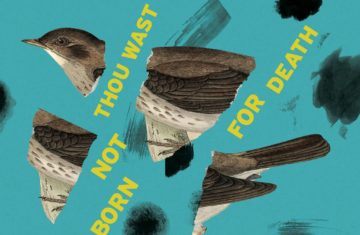Robert Pinsky in the New York Times:
 Early in her book about John Keats, Lucasta Miller calls Lord Byron an “aristocratic megastar.” That funny epithet is accurate for Byron’s more-than-superstar celebrity in his day. It also suggests the many ways Byron was the opposite of Keats. Miller quotes Byron, in a letter, referring to the younger and much less well-known poet as “Jack Keats or Ketch or whatever his names are.”
Early in her book about John Keats, Lucasta Miller calls Lord Byron an “aristocratic megastar.” That funny epithet is accurate for Byron’s more-than-superstar celebrity in his day. It also suggests the many ways Byron was the opposite of Keats. Miller quotes Byron, in a letter, referring to the younger and much less well-known poet as “Jack Keats or Ketch or whatever his names are.”
Posterity, as Miller says, has since then “leveled … up” the two poets. And “leveled” is an understatement. For a certain lyrical essence of poetry written in English, Keats in his greatest poems surpasses every writer since Shakespeare. For poets, he embodies something central to the art, a little like what Shakespeare embodied for Keats. That lyrical core survives the tangle of mythology that exaggerates his actual life.
Well beyond the contrast with Byron, the words “aristocratic” and “megastar” are germane to Miller’s job of refreshing and clarifying an old story. Social class and fame were both powerful, daily presences for Keats. They still infuse the shifty cloud of half-truths, myths, stereotypes, facts and genuine marvels that surround his astonishing career.
More here.
